- Home
- Military & Defense
- Hardware
- 15 Startups Leading The Hardware Revolution
15 Startups Leading The Hardware Revolution
Grand St. helps hardware makers sell their products

Pebble makes a smartwatch that connects to your Android phone or iPhone
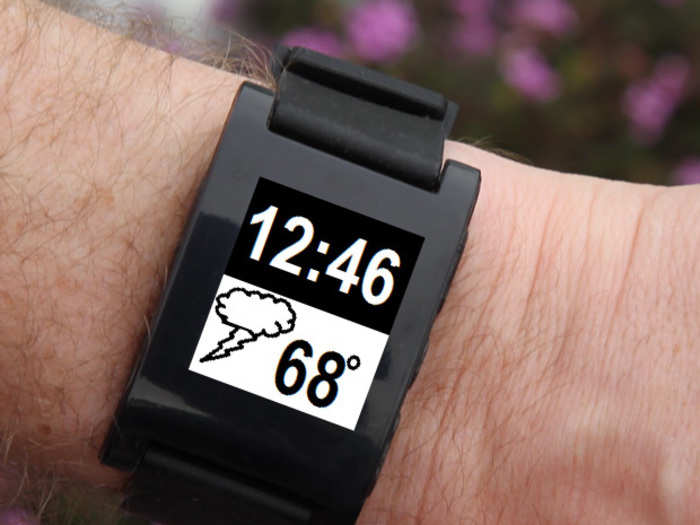
Startup: Pebble
Founded: 2012
Location: San Francisco, Calif.
Founder: Eric Migicovsky
Concept: A fully customizable e-ink smartwatch.
Why you should care: Pebble was one of the largest Kickstarter campaigns ever, raising over $10 million in about 30 days.
The watch uses sports and fitness apps, allowing you to get notifications from your smartphone. Pebble also lets users wirelessly control music without having to remove your smartphone from your pocket.
Funding: $26.1 million
Ouya is a $99 game console that challenges traditional systems.
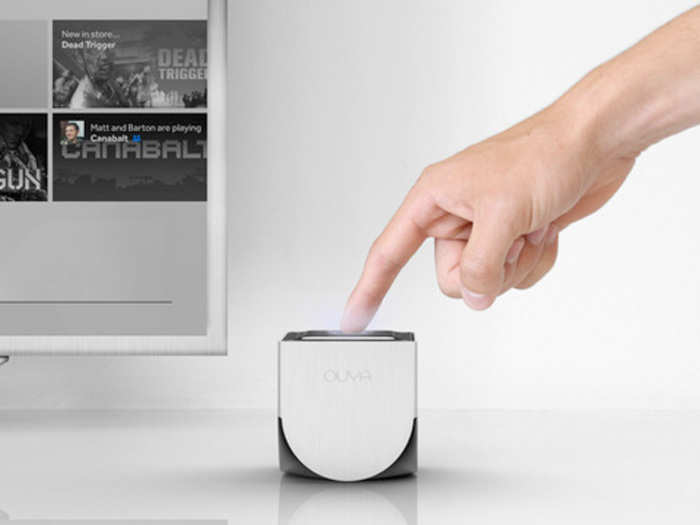
Startup: Ouya
Founded: 2012
Location: Los Angeles, Calif.
Founders: Julie Uhrman and Yves Behar
Concept: A $99 open-sourced video gaming console based on Android.
Why you should care: Ouya is re-imaging how we consume video games. Traditionally, consoles cost upwards of $300, but this device is tiny and cheap. The Ouya runs its own version of the Android operating system and is in the process of developing exclusive content.
The platform is completely open, meaning any Ouya owner and gamer can also become a developer.
Funding: $23.6 million
Leap Motion is changing how we interact with our computers.
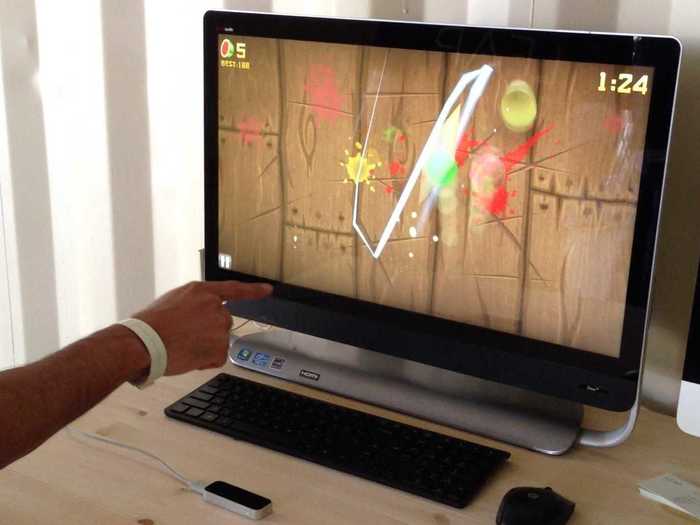
Startup: Leap Motion
Founded: 2010
Location: San Francisco, Calif.
Founders: Michael Buckwald and David Holz
Concept: Leap Motion makes a small motion sensor that lets users wirelessly interact with their computer. The company was inspired by frustration surrounding 3D modeling using a mouse and keyboard.
Why you should care: The Leap Motion controller is tiny. It allows you to use gestures based motions to interact with computers. Users simply wave in front of the screen. This game-changing technology frees us from mice and keyboards and imitates the tablet experience on a desktop.
Funding: $44.1 million
Olloclip is a tiny iPhone camera accessory that lets users take dynamic photos.
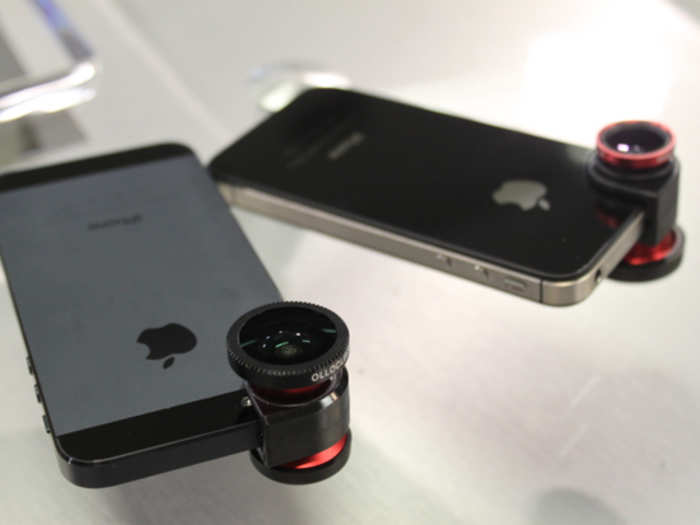
Startup: Olloclip
Founded: 2010
Location: Huntington Beach, Calif.
Founder: Patrick O'Neil
Concept: To make a better photography experience on smartphones.
Why you should care: The Olloclip uses a simple and light design philosophy. The company primarily makes special lenses that clop onto your smartphone to create cool effects.
Funding: Personal funding and $68,201 from Kickstarter
littleBits are small, simple, intuitive, blocks similar to LEGOs. They make creating things with sophisticated electronics as easy as snapping small magnets together.
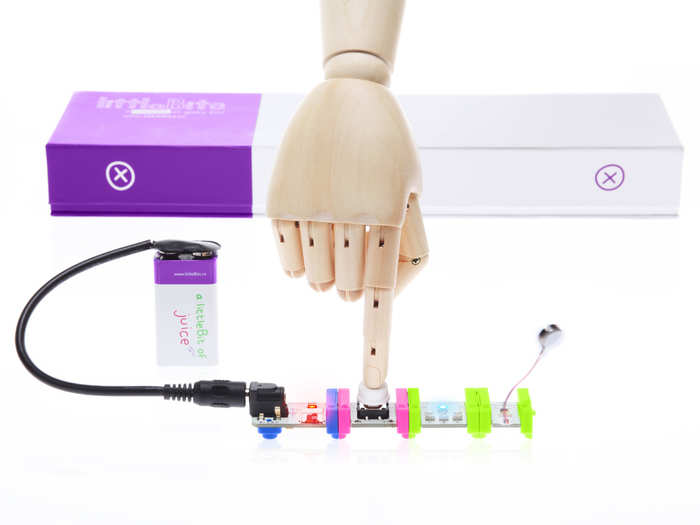
Startup: littleBits
Founded: 2011
Location: New York, NY
Founders: Ayah Bdeir
Concept: littleBits is a New York based company that sells a library of modular electronics that snap together with tiny magnets for prototyping, learning, and fun.
Why you should care: littleBits is a starter kit that lets you build your own gadgets. You can get as creative as you want to. For example, one littleBits user made his own alarm clock that wakes him up when the sun rises and only goes off when he's home. The only limit is your imagination.
Funding: $4.5 million
Lapka empowers its users to use science to discover more about their environment.

Startup: Lapka
Founded: 2012
Location: San Francisco, Calif.
Founders: Vadik Marmeladov and Sergey Philippov
Concept: Lapka is a set of four beautifully designed environmental sensors that connect to your iPhone. The company's goal is to "mix Yves Saint Laurent and NASA together.”
Why you should care: Lapka's sensors plug into your iPhone's headphone jack and pair with an app that can measure environmental properties and record radiation, humidity, EMF, and even how organic something is.
The company has an eye for design both inside and out, its devices are carefully crafted and beautiful.
Funding: Unknown
Ploom creates portable vaporizers, ushering in a new healthier way to enjoy tobacco.
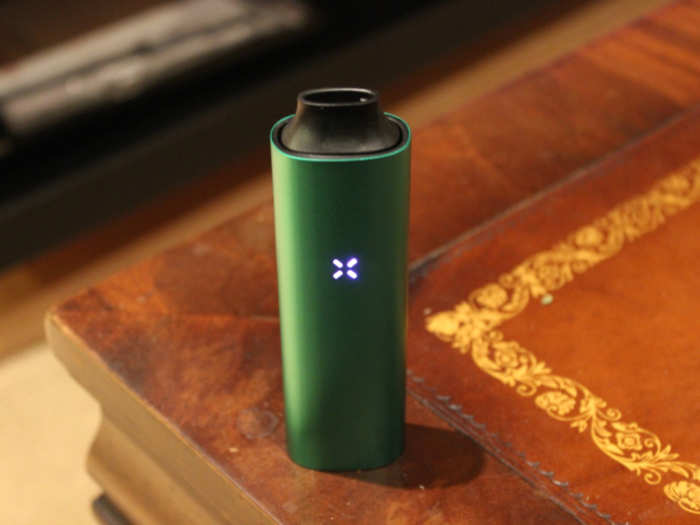
Startup: Ploom
Founded: 2007
Location: San Francisco, Calif.
Founders: James Monsees and Adam Bowen
Concept: Ploom designs and manufactures portable tobacco vaporizers that re-imagine the smoking experience. The company's most popular device, the Pax, mixes modern tech, materials, and processes with a beautiful, simple design.
Why you should care: Vaporizing is an alternative method to consuming tobacco. Ploom's portable line of vaporizers extract the active ingredients of tobacco by heating them up to a high temperature versus burning it with a flame. The device achieves zero combustion, eliminating smoke and second-hand smoke.
This doesn't necessarily mean vaporized tobacco is better for you, but it is less intense than smoking the traditional way.
Funding: Unknown
SpaceMonkey lets you make your own cloud storage service.
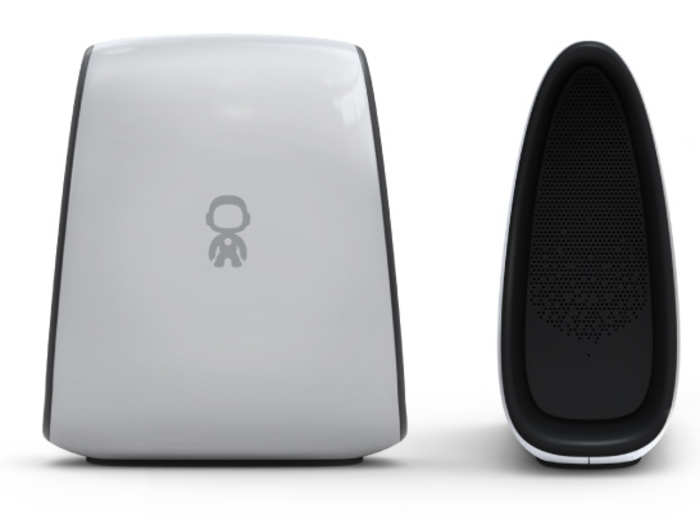
Startup: Spacemonkey
Founded: 2011
Location: Salt Lake City, UT
Founders: Clint Gordon-Carroll and Alen Peacock
Concept: Our files are increasingly being stored in the cloud, but SpaceMonkey believes the current way we interact with the cloud is flawed. The company wants to take the cloud out of the data center and move it to the very edge — consumer's homes.
Why you should care: SpaceMonkey is providing 1TB of cloud storage for $120 per year. The Space Monkey device moves the cloud into your home, making it easier than ever to store, share, and access all your digital content—photos, videos, documents, and music—online.
Once you've stored a file on Space Monkey, the company says it's always safe. There is no need for off-site backup products or external hard drives. SpaceMonkey keeps a copy of your files locally on the Space Monkey device and another encrypted copy spread throughout its storage network—making your data virtually indestructible.
Funding: $2.6 million
Makerbot is leading the way in the consumer 3D printing space.
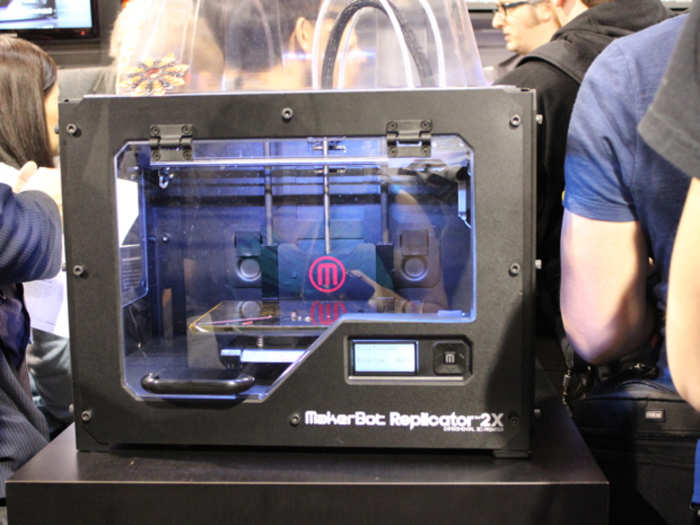
Startup: Makerbot
Founded: 2009
Location: Brooklyn, N.Y.
Founders: Bre Petis, Adam Mayer, and Zach "Hoeken" Smith
Concept: Makerbot produces a consumer 3D printer.
Why you should care: Makerbot's line of 3D printers are relatively affordable, they retail starting at, $1,999. In addition, the company separates itself from the competition by offering support provided by full-time staff, and relatively low cost build material.
Funding: $10 million
Amiigo is a new wearable band that can tell exactly what exercise you're performing.
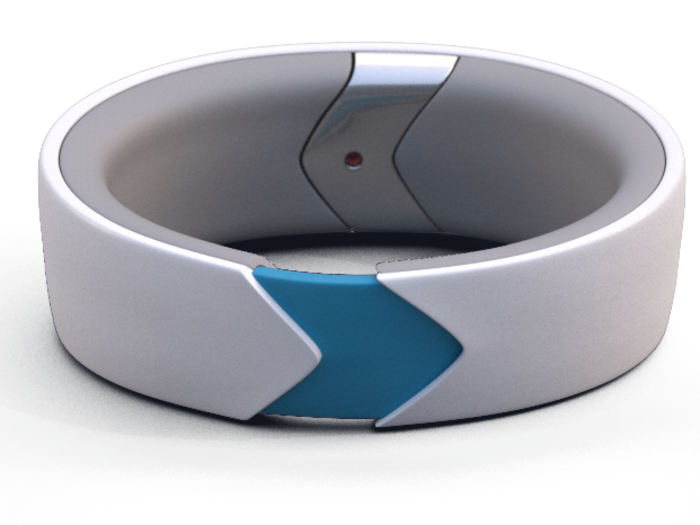
Startup: Amiigo
Founded: 2011
Location: Salt Lake City, UT
Founders: David Scott, Abe Carter, and Nahom Workie
Concept: The Amiigo is a wearable sports band and shoe sensor that knows exactly what exercise you're performing.
Why you should care: The Amiigo is an interesting new wearable device that uses Bluetooth to pair with a bracelet and shoe clip. The devices connects with iOS and Android phones.
Amiigo is unique because it has memory and can store data for hours. A constant Bluetooth connection is not required.
Amiigo is social too. It allows you to compete with friends, share on social networks, achieve your goals, and earn points.
Funding: $580,698 via Indiegogo
ChargeCard is a credit card-sized smartphone charger.
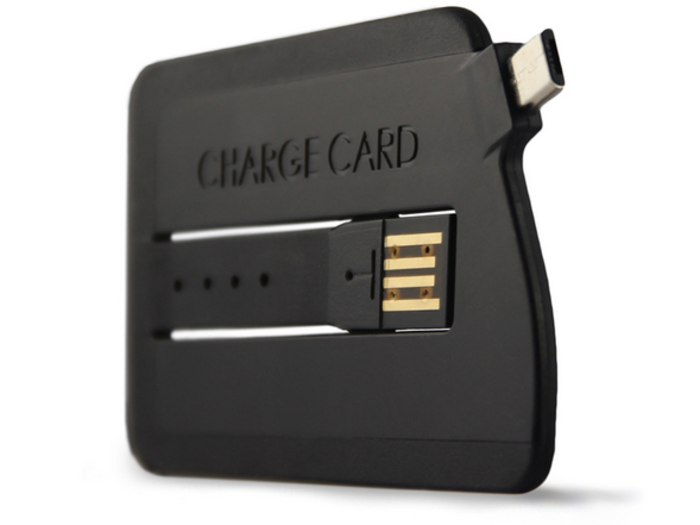
Startup: ChargeCard
Founded: 2012
Location: Los Angeles, Calif.
Founders: Noah Dentzel and Adam Miller
Concept: ChargeCard is a ridiculously slim card-shaped charging cable that fits inside your wallet.
Why you should care: Smartphones are constantly running low on power and ChargeCard makes sure that you always have a charging cable. The ChargeCard is available for any smartphone that supports Micro USB, Apple products that support the 30-pin dock connector (iPhone 3GS/4/4S, iPad 1, 2, and 3), and even the new Lightning Port (iPhone 5, iPad 4, iPad Mini).
Funding: $161,897 via Kickstarter
Ninja Blocks bridges the gap between different gadgets.
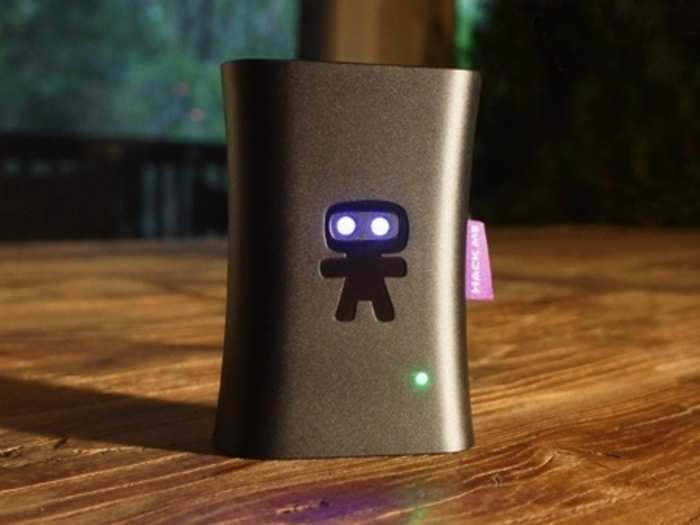
Startup: Ninja Blocks
Founded: 2012
Location: Eveleigh, Australia
Founders: Marcus Schappi, Madeleine Schappi, and Pete Moore
Concept: Ninja Blocks connect your things to the web.
Why you should care: Using Ninja Blocks you can automate your gadgets. For example, using the system you can get an alert when your friends are playing on Xbox Live or send a text message to your phone when someone knocks on your door.
While this seems complicated Ninja Blocks does the hard work for you removes the coding and networking to allow users to focus on automating our lives.
Funding: $1.1 million from Kickstarter
Lockitron provides keyless entry using just your smartphone.
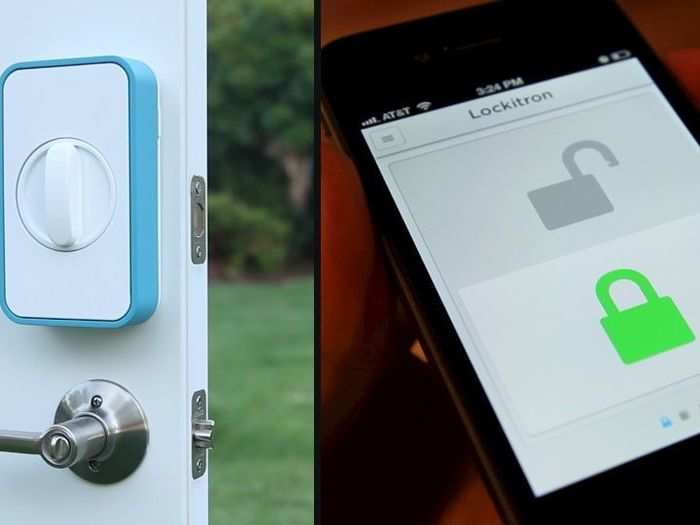
Startup: Lockitron
Founded: 2009
Location: San Francisco, Calif.
Founders: Cameron Robertson and Paul Gerhardt
Concept: Lockitron allows you keyless entry using your phone.
Why you should care: The beautifully designed, Lockitron slips over the inside of most deadbolt locks. It has built-in Wi-Fi so you can lock and unlock your door from afar. With the iPhone app you can also check the status of and lock or unlock your door without being near it.
Lockitron's best feature is Bluetooth integration, which allows the Lockitron to sense when your iPhone 4S or iPhone 5 is nearby and unlock the door automatically.
Funding: $2.2 million
Everpurse is a small purse that has a special charging pocket to wirelessly charge smartphones on the go.

Startup: Everpurse
Founded: 2012
Location: Chicago, IL
Founders: Liz Salcedo
Concept: A small purse with a special pocket that lets you charge your smartphone wirelessly.
Why you should care: The company has set out to build a product that is powerful and easy to use. Just drop your phone inside a special pocket in your purse and it charges. Besides including powerful technology, the bags are also well-designed and come in a range of different materials and fabrics. The Everpurse itself is easy to charge too, simply drop it on a wireless charging mat and it will refill its own battery. The Everpurse will charge your phone from 0% to 100% about twice in one day.
Funding: $238,187 (via Kickstarter)
Now check out these money-making techniques startups should be paying attention to...

Popular Right Now
Popular Keywords
Advertisement